News written by Rich Fiscus (February, 2009)
Written by Rich Fiscus @ 27 Feb 2009 6:30
 The last few years have seen an explosion in streaming video. You can catch that TV show you missed last night, find episodes of your favorite 20 year old sitcom, or just watch amateur video on YouTube.
The last few years have seen an explosion in streaming video. You can catch that TV show you missed last night, find episodes of your favorite 20 year old sitcom, or just watch amateur video on YouTube.
As the popularity and availability of video increases, so does the demand to watch it on a TV instead of just a computer monitor. If you have a media center PC you may already be watching onine video this way.
On the whole, though, the experience is unsatisfying. Web browsers aren't particularly well suited to making the leap from computer to TV. Perhaps worst of all, you may have to put down your remote and control things with a mouse.
Then along comes a new media center application called Boxee. Boxee is specifically designed to solve that problem.
Boxee is already available for Linux, Intel Macs, and can even be installed on Apple TV with a hack. Now they're working on a version for Windows. The folks at Boxee were kind enough to supply me with a copy of the latest Windows alpha to try out.
As you would expect from software that hasn't even gotten to beta testing, it's far from complete. But what is done is impressive, and I can't wait to see the rest when it's finished.
Read more...
Written by Rich Fiscus @ 27 Feb 2009 9:47
 If you own an iPhone it's just become a little easier to watch video from TV.com thanks to their new addition to the iTunes App Store.
If you own an iPhone it's just become a little easier to watch video from TV.com thanks to their new addition to the iTunes App Store.
Their new app for the iPhone and iPod Touch (with v2 firmware) allows you to stream video over a WiFi network, and apparently also using AT&T's 3G mobile internet connection.
TV.com is a CNet-owned website that allows you to stream episodes of CBS and Viacom owned shows for free. Content from Hulu was also featured until last week when they were pulled suddenly.
Written by Rich Fiscus @ 27 Feb 2009 7:51
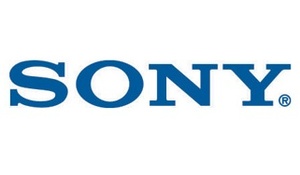 Sony, which is expected to be announcing it's first annual loss in the last 14 years, is restructuring their management team and consumer electronics divisions. Effective April 1. Chairman and CEO Howard Stringer will be taking on the additional title of President.
Sony, which is expected to be announcing it's first annual loss in the last 14 years, is restructuring their management team and consumer electronics divisions. Effective April 1. Chairman and CEO Howard Stringer will be taking on the additional title of President.
The reorganization of Sony's consumer electronics business appears to be aimed at coming up with a single vision for related products.
Their Playstation, VAIO, and Walkman product lines will be part of the new Networked Products & Services Group. It will also include Sony Media & software, who will be responsible for compatibility across those product lines.
The rest of Sony's consumer electronics lines will be part of the New Consumer Products Group. The Common Software and Technology team and Manufacturing/Logistics/Procurement team will be responsible for coordinating design and manufacturing strategies between the two groups.
This seems long overdue given Sony's apparent lack of focus across product lines. As the only company to manufacture PCs, multiple gaming platforms, and audio/video equipment you would hope they could do better in tough economic times.
Read more...
Written by Rich Fiscus @ 26 Feb 2009 1:18
 As the Pirate Bay trial continues in Sweden, the prosecution seems to lose credibility every day. The last two days' proceedings highlight a distinct lack of evidence or legal arguments on the part of prosecutors and their recording industry counterparts.
As the Pirate Bay trial continues in Sweden, the prosecution seems to lose credibility every day. The last two days' proceedings highlight a distinct lack of evidence or legal arguments on the part of prosecutors and their recording industry counterparts.
Earlier this week a so-called expert provided by the IFPI managed to prove only that his investigation of The Pirate Bay was tainted by inaccurate assumptions about how BitTorrent works. This was followed by a day of (conveniently evidence-free) recording industry claims of P2P downloads harming the music industry.
There's probably a good reason he didn't try to back this up with actual numbers (outside of CD sales) - because they numbers don't back him up at all. According to Billboard Magazine, concert attendance in 2008 was the same as 2007 despite higher ticket prices.
CD sales, on the other hand, were down significantly. In other words the music industry is doing fine as long as you're talking about musicians rather than label executives.
Read more...
Written by Rich Fiscus @ 26 Feb 2009 8:48
 A German manufacturer of ISP traffic monitoring hardware has issued their annual report on internet traffic trends. Based on a study which focuses on South America, Africa, the Middle East, and parts of Europe, the report from ipoque indicates that P2P accounts for more than half of all web traffic.
A German manufacturer of ISP traffic monitoring hardware has issued their annual report on internet traffic trends. Based on a study which focuses on South America, Africa, the Middle East, and parts of Europe, the report from ipoque indicates that P2P accounts for more than half of all web traffic.
Concentrating on Germany, where their European data is the most in-depth, P2P volume was actually a smaller percent of total traffic than the previous year. But this was more than offset by general web traffic. According to ipoque this is mostly due to file hosting services like Rapidshare and Megaupload.
You could argue this shows overall file sharing is still growing faster than other traffic, but moving to less transparent venues.
This shows a fundamental flaw with the idea of stopping internet file sharing. If you assume that it can't be stopped, which appears to be the case, the next logical question is how can content owners benefit from it.
One thing that's certain is they're better served by seeing what's going on via P2P than pushing it into the dark corners of the internet and pretending they're stopping it.
Written by Rich Fiscus @ 26 Feb 2009 7:20
 A recent study conducted by Nielsen, the famous TV ratings company, found that people watched more TV in the last quarter of 2008 than the same period a year earlier. Given current economic conditions that probably shouldn't surprise anyone.
A recent study conducted by Nielsen, the famous TV ratings company, found that people watched more TV in the last quarter of 2008 than the same period a year earlier. Given current economic conditions that probably shouldn't surprise anyone.
What may surprise you a little is what they have to say about other video habits. Web video in particular seems to be popular with an older audience than you might expect.
According to Nielsen more than half the audience for internet video is age 35 or older. Perhaps most surprising is that the 45 - 54 age group accounted for more viewers than any other.
The report also shows time shifting continuing to rise among TV viewers. This is no surprise to people paying attention to DVR ownership over the last few years.
The Nielsen report shows a 37.1% increase in the number of people time shifting over the previous year, with the number of hours watched this way increasing by 33%.
Written by Rich Fiscus @ 25 Feb 2009 8:57
 Originally scheduled to be enforced starting on February 28, New Zealand's controversial 3 strikes law for disconnecting accused P2P pirates has been suspended until March 27. Meanwhile Prime Minister John Key still backs the plan, even going so far as to make up reasons for its existence.
Originally scheduled to be enforced starting on February 28, New Zealand's controversial 3 strikes law for disconnecting accused P2P pirates has been suspended until March 27. Meanwhile Prime Minister John Key still backs the plan, even going so far as to make up reasons for its existence.
You have to wonder if Key is aware that people are able to get news from outside the country. He seems to be characterizing the idea of disconnecting people from the internet at the whim of record labels as an international standard.
"One of the challenges is that internationally, the equivalent of Section 92A is emerging around the world," said Key. "Australia has a version, the UK has a version."
It's true UK officials were considering a similar plan, but they announced just last month it would have too many legal problems to be viable. And while discussion started in Australia more than a year ago, nothing substantive has come of it yet.
Read more...
Written by Rich Fiscus @ 24 Feb 2009 12:53
 The trial of four men accused of being accessories to illegal file sharing for their involvement with The Pirate Bay resumed this week in Sweden. There were no dramatic developments like the prosecutor's decision to drop half the charges last week. Instead he concentrated on entertainment industry witnesses.
The trial of four men accused of being accessories to illegal file sharing for their involvement with The Pirate Bay resumed this week in Sweden. There were no dramatic developments like the prosecutor's decision to drop half the charges last week. Instead he concentrated on entertainment industry witnesses.
Perhaps the most notable witness was the one who didn't make it. Police investigator Jim Keyzer made headlines last year when a possible conflict of interest became public. Keyzer was working Warner Brothers, one of the largest entertainment conglomerates in the world, while investigating The Pirate Bay.
After finishing his investigation Keyzer took a leave of absence from the police department to work exclusively for Warner. He returned months later, but the prosecutor was reportedly unable to contact him to testify.
Instead of Keyzer, a lawyer who works for the IFPI testified to downloading infringing content using a Pirate Bay tracker. But when questioned by the defense he admitted to using a feature of BitTorrent that would allow him to download with no tracker whatsoever.
Read more...
Written by Rich Fiscus @ 24 Feb 2009 12:05
 France's 3 strikes law for P2P copyright infringers may be close to passage in the Fench National Assembly. Lawmakers are currently working on a final draft that should be ready for a vote some time next month according to a story from Intellectual Property Watch.
France's 3 strikes law for P2P copyright infringers may be close to passage in the Fench National Assembly. Lawmakers are currently working on a final draft that should be ready for a vote some time next month according to a story from Intellectual Property Watch.
First proposed by President Nicholas Sarkozy in November of 2007, it would create a new government agency where copyright holders could take infringement claims. That agency would send written warnings for the first two offenses, followed by an order to terminate internet service on the third.
While certainly better than recording industry proposals, which have generally left any governmental controls out of the equation, this law would still raise serious legal issues. Perhaps the biggest is how such a decision can be reached with no judicial oversight.
In addition there are questions about whether internet service should be classified as a necessity, which would make it unlikely such a law would pass legal muster.
Read more...
Written by Rich Fiscus @ 23 Feb 2009 6:32
 CBS Corporation issued a statement today suggesting they plan to fight the loss of Hulu videos on TV.com. A statement issued today by CBS said "CBS Interactive is well within its rights to stream Hulu video content on TV.com under its agreement with Hulu. We are evaluating our next steps at this time."
CBS Corporation issued a statement today suggesting they plan to fight the loss of Hulu videos on TV.com. A statement issued today by CBS said "CBS Interactive is well within its rights to stream Hulu video content on TV.com under its agreement with Hulu. We are evaluating our next steps at this time."
The dispute began last week when Hulu content was pulled from both TV.com and the Boxee media center. A vague explanation was given for the Boxee situation, but the only thing anyone at Hulu had to say about TV.com was that it had to do with "contractual obligations."
In some ways Hulu is one of the most surprising services on the internet. In 2007, when NBC Universal and Fox parent News Corp announced they were working on an online video website it seemed unlikely they would come up with an offering as user friendly as Hulu. Up to that Hollywood's track record was horrible.
From the time it launched Hulu has received unprecedented praise from nearly everyone. You could barely tell they were owned by huge media companies.
Read more...
Written by Rich Fiscus @ 23 Feb 2009 1:43
 As week 1 of the Pirate Bay trial wrapped up last Friday Peter Sunde Kolmisoppi, the public face of the torrent tracker site, said that as much as 80% of the content linked to is legal to share. He went on to suggest that the percentage of infringing content on The Pirate Bay is less than that found on YouTube.
As week 1 of the Pirate Bay trial wrapped up last Friday Peter Sunde Kolmisoppi, the public face of the torrent tracker site, said that as much as 80% of the content linked to is legal to share. He went on to suggest that the percentage of infringing content on The Pirate Bay is less than that found on YouTube.
Kolmisoppi said his figures were based on a survey of 1000 randomly selected torrents. He said that 70% - 80% appeared to be for legal content.
He also spent some time protesting questions from music industry lawyer Peter Danowsky, who wanted him to explain his views on copyright. Kolmisoppi refused to provide the explanation, characterizing the line of questioning as political rather than legal.
Written by Rich Fiscus @ 23 Feb 2009 10:11
 In a statement last Thursday, acting FCC Commissioner Michael Copps seemed happy about how the first wave of the US DTV transition went. He said "Thanks to the movement of the deadline, we did not have anything like the extent of disruption we would have experienced had every station in the country gone completely digital. on Tuesday."
In a statement last Thursday, acting FCC Commissioner Michael Copps seemed happy about how the first wave of the US DTV transition went. He said "Thanks to the movement of the deadline, we did not have anything like the extent of disruption we would have experienced had every station in the country gone completely digital. on Tuesday."
He called on everyone involved to make the remaining stations' transition even smoother, noting that "Most stations and most consumers still have the transition ahead of them." His remarks, were intended primarily for "cable and other companies, the many consumer organizations, and an absolutely inspired group of civil servants who all stepped up to the plate."
He failed to mention that the majority of consumer complaints related to areas where the FCC seems to have dropped the ball. The agency's call centers fielded more than 70,000 calls on Monday, Tuesday, and Wednesday of last week. Most of them were about either the FCC-run voucher program or reception problems.
By far the largest number of complaints before the first wave of mass analog shut offs were related to obtaining DTV converters. Most of these calls were from people who either hadn't received their government vouchers yet, or had received a voucher but not used it within 90 days, allowing it to expire.
Read more...
Written by Rich Fiscus @ 23 Feb 2009 8:03
 Last week Hulu, a major streaming video provider, announced their content would no longer be available to Boxee users. Boxee is a media center application designed partly for watching the free video streams from the internet. Now someone at Lifehacker has come up with a workaround to bring Hulu content back to Boxee.
Last week Hulu, a major streaming video provider, announced their content would no longer be available to Boxee users. Boxee is a media center application designed partly for watching the free video streams from the internet. Now someone at Lifehacker has come up with a workaround to bring Hulu content back to Boxee.
Despite not having any actual agreement in place with Hulu, Boxee made it possible to stream their shows for viewing on a TV. The content was not altered in any way, which meant any ads in the original source remained intact.
Boxee's unique integration with a related social network could also be used to provide valuable user feedback to Hulu. This social networking feature allows and encourages members to recommend content to each other.
The only official comment from Hulu came in the form of a blog post by CEO Jason Kilar. He wrote only that it was at the request of "content owners." Most Hulu content comes from its two parent companies, NBC Universal and Fox, but it also features TV shows and movies from MGM, Sony Pictures Television, and Warner Brothers.
Read more...
Written by Rich Fiscus @ 19 Feb 2009 1:52
 Some bands welcome the exposure that P2P file sharing gives their music. U2 is not one of those bands. They recently announced plans to release just one single from their upcoming album, "No Line On The Horizon" as a free download. Before they were ready to do that it seems the entire album has made it way onto P2P networks.
Some bands welcome the exposure that P2P file sharing gives their music. U2 is not one of those bands. They recently announced plans to release just one single from their upcoming album, "No Line On The Horizon" as a free download. Before they were ready to do that it seems the entire album has made it way onto P2P networks.
It apparently started with an Australian online music store putting the tracks up for sale early. Someone at the store, GetMusic, noticed and it was removed, but not before several people had managed to buy it. As you would expect torrents quickly appeared on trackers like The Pirate Bay.
This isn't the first time a U2 album has been available via P2P before its official release. In 2004 "How To Dismantle An Atomic Bomb" appeared on the internet more than two weeks ahead of its official debut. The new album isn't slated for release until March 2.
Perhaps their management will see this as another opportunity to call out ISPs, for not spying on their customers.
Written by Rich Fiscus @ 19 Feb 2009 1:00
 Earlier this month the Electronic Frontier Foundation (EFF) officially requested that the Library of Congress create a DMCA exemption for jailbreaking smartphones to allow the installation of software not approved by the manufacturer. Last week Apple responded with a claim that this would violate iPhone copyrights. Now Mozilla Corporation, developers of the Firefox web browser, and VOIP provider Skype have filed their own comments in support of EFF's position.
Earlier this month the Electronic Frontier Foundation (EFF) officially requested that the Library of Congress create a DMCA exemption for jailbreaking smartphones to allow the installation of software not approved by the manufacturer. Last week Apple responded with a claim that this would violate iPhone copyrights. Now Mozilla Corporation, developers of the Firefox web browser, and VOIP provider Skype have filed their own comments in support of EFF's position.
Harvey Anderson, Vice President of Mozilla wrote "users who purchase these devices are required to decrypt and modify, or "jailbreak," their phones. This creates a chilling effect on users and innovation. Users do not feel they have the choice of using open source and other legitimately obtained software programs or software they develop on their telephone handsets because they are concerned about breaching the law."
Skype's comments point out that US carriers all claim to be in favor of open wireless networks, while they "continue to employ various means to keep users from using devices and software applications of their choice — from terms of service to the software and firmware loaded on the handsets sold by the carriers."
Read more...
Written by Rich Fiscus @ 19 Feb 2009 9:50
 The Swedish website for IFPI, the International Federation of the Phonographic industry was hacked yesterday to protest the ongoing Pirate Bay trial in that country. It was replaced by a simple message,.which according to Betanews translates to the following.
The Swedish website for IFPI, the International Federation of the Phonographic industry was hacked yesterday to protest the ongoing Pirate Bay trial in that country. It was replaced by a simple message,.which according to Betanews translates to the following.
Stop lying HÅKAN ROSWALL!
The ruthless hunt conducted by the IFPI, Anti-Piracy Office, Warner Bros., and all the other companies with a pawn in the game has now resulted in a trial in which four innocent men are accused of copyright infringement.
This is a declaration of war against anti-piracy and the industry players behind it, and we urge the public to boycott and lynch those responsible.
IFPI is just a beginning. To be Continued.
Håkan Roswell is a prosecutor arguing the case against four Swedish men in charge of The Pirate Bay. They are accused with being accessories to making copyrighted works available. Originally they were also charged as accessories to copyright infringement, but Roswell dropped those charges a day after the trial began.
Read more...
Written by Rich Fiscus @ 18 Feb 2009 12:07
 An Australian man has been arrested for allegedly recording movies with his camcorder at a drive-in theater. According to the Motion Picture Association (MPA), an organization representing movie studios around the world, the 26 year old was responsible was responsible for recording a number of cam movies made available by the release group PreVail.
An Australian man has been arrested for allegedly recording movies with his camcorder at a drive-in theater. According to the Motion Picture Association (MPA), an organization representing movie studios around the world, the 26 year old was responsible was responsible for recording a number of cam movies made available by the release group PreVail.
Police seized camcorder and computer equipment in a raid. This equipment was allegedly used for recording recent movies, including “He’s Just Not That Into You”, “Marley and Me”, “Yes Man”, “Bedtime Stories”, and “Beverley Hills Chihuahua”.
They were acting largely on information collected by the Australian Federation Against Copyright Theft (AFACT). AFACT is an organization comprised of companies in the Australian film and television industry.
The drive-in where the Cam releases were recorded was identified using digital watermarks added to many film prints before they're sent to theaters.
“Anyone thinking of illegally camcording a movie should be aware that the technology exists to identify them, track them down and take them to court on criminal copyright charges,” said Neil Gane, Director of Operations at AFACT.
Written by Rich Fiscus @ 18 Feb 2009 9:57
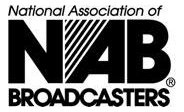 Yesterday SoundExchange and the National Association of Broadcasters (NAB) announced a deal for webcasting royalties. This deal covers only terrestrial radio stations, and not internet-only operations like Pandora. The deadline for SoundExchange to reach a deal with all webcasters (February 15) had already expired, which may mean more action from Congress in the coming weeks.
Yesterday SoundExchange and the National Association of Broadcasters (NAB) announced a deal for webcasting royalties. This deal covers only terrestrial radio stations, and not internet-only operations like Pandora. The deadline for SoundExchange to reach a deal with all webcasters (February 15) had already expired, which may mean more action from Congress in the coming weeks.
Or it may mean the courts will have the final word on internet radio royalties. Next month webcasters are scheduled to argue their case in front of a federal judge, appealing a March, 2007 decision by the Copyright Royalty Board (CRB) which created the current situation.
The board was charged with finding a compromise between record label and webcaster royalty proposals. Instead they stunned everyone by signing off on the one sided proposal from SoundExchange, representing the labels.
Read more...
Written by Rich Fiscus @ 17 Feb 2009 2:49
 Last October South Park Studios, creators of the Comedy Central show with the same name, submitted an iPhone app to Apple. According to a sneak preview at that time it would allow you to get wallpaper for your phone, read the studio's news feed, stream full episodes from their website, and even purchase them from the iTunes store. Now it seems Apple has decided not to approve the app.
Last October South Park Studios, creators of the Comedy Central show with the same name, submitted an iPhone app to Apple. According to a sneak preview at that time it would allow you to get wallpaper for your phone, read the studio's news feed, stream full episodes from their website, and even purchase them from the iTunes store. Now it seems Apple has decided not to approve the app.
An announcement on the South Park website gave fans the bad news, saying "After a couple of attempts to get the application approved, we are sad to say that our app has been rejected. According to Apple, the content was 'potentially offensive.'"
No doubt this is not the sort of news Apple would like to see right now. They're already defending themselves in a dispute with the Electronic Frontier Foundation over iPhone jailbreaking.
The EFF recently filed a request with the Library of Congress asking for jailbreaking to be exempt from the DMCA. They argue that it's essential for giving consumers an option to use whatever software they want on their phones, rather than being limited to whatever Apple allows.
Read more...
Written by Rich Fiscus @ 17 Feb 2009 1:32
 The US Department of Justice may be getting ready to back the RIAA in one of their P2P lawsuits. At issue is a challenge to the constitutionality of a single provision of US copyright law which mandates minimum damages of $750 per work (1 song or album), or as much as $150,000 per work if the infringer knows what he's doing is illegal.
The US Department of Justice may be getting ready to back the RIAA in one of their P2P lawsuits. At issue is a challenge to the constitutionality of a single provision of US copyright law which mandates minimum damages of $750 per work (1 song or album), or as much as $150,000 per work if the infringer knows what he's doing is illegal.
The challenge was filed in the case of Sony BMG v Denise Cloud as part of a motion made by the defendant's lawyer to dismiss the lawsuit. The Attorney General's office subsequently filed a notice with the court announcing they may wish to defend the damages. They are planning to let the court know what their decision is by March 25.
This is far from the first time the subject has come up, but no judge has ever had to rule on it. Just last month Charles Nesson, the Harvard University law professor assisting the defense in another RIAA lawsuit, told Afterdawn the amount mandated by law is "so grossly out of proportion that it violates the due process clause."
What is different now is the presence at the DOJ of lawyers who have been crucial cogs in the RIAA's lawsuit machine. Litigators who were instrumental in the Grokster case and the initial wave of lawsuits against P2P users have been appointed to top spots in the Justice Department by President Obama.
Read more...
Written by Rich Fiscus @ 17 Feb 2009 11:53
 After just a single day in the trial of Frederik Neij, Gottfrid Svartholm Warg, Peter Sunde Kolmsioppi and Carl Lundstorm for running a wildly successful torrent tracker site, The Pirate Bay, prosecutors have dropped half the charges.
After just a single day in the trial of Frederik Neij, Gottfrid Svartholm Warg, Peter Sunde Kolmsioppi and Carl Lundstorm for running a wildly successful torrent tracker site, The Pirate Bay, prosecutors have dropped half the charges.
The prosecution's problems started nearly immediately when they began presenting their case. After listening to the prosecutor explain how BitTorrent works one of the defendants asked to make a correction. He went on to show that not only was the original explanation wrong, but that the evidence presented didn't show any involvement by The Pirate Bay in the actual downloads.
That led to all charges for "assisting copyright infringement" being dropped. The remaining charges of "assisting making available copyrighted content" will still be prosecuted.
Not surprisingly, a representative of the international equivalent to the RIAA, the IFPI, was quick to spin this as a positive development. In a statement he said the decision to drop half the charges “changes nothing in terms of our compensation claims and has no bearing whatsoever on the main case against The Pirate Bay." He added "it simplifies the prosecutor’s case by allowing him to focus on the main issue, which is the making available of copyrighted works.”
Read more...
Written by Rich Fiscus @ 17 Feb 2009 9:50
 The biggest milestone to date in the US DTV transition will be passed today. Before midnight tonight 421 analog TV broadcasts will be shut down. Combined with the 220 stations that have already switched that will mean more than a third of broadcasters are already all digital.
The biggest milestone to date in the US DTV transition will be passed today. Before midnight tonight 421 analog TV broadcasts will be shut down. Combined with the 220 stations that have already switched that will mean more than a third of broadcasters are already all digital.
Despite the passage of the DTV Delay Act earlier this month many broadcasters have chosen to stick with the original February 17 transition deadline. There were actually 491 stations still planning to switch today. The FCC initially denied 123 such requests. After several broadcasters appealed that number was reduced to 70, with the other 53 allowed to continue as planned today.
Speaking about his agency's decision, acting Chairman Michael Copps said "This is not just about whether people can watch their favorite reality show. It’s about whether consumers have access to vital emergency alerts, weather, news and public affairs.”
If you're not sure whether a station in your area is switching now you can find that information on the FCC's website. It's available either in an Excel spreadsheet or a PDF document. Stations are sorted by Nielsen (TV ratings) market.
Read more...
Written by Rich Fiscus @ 17 Feb 2009 7:25
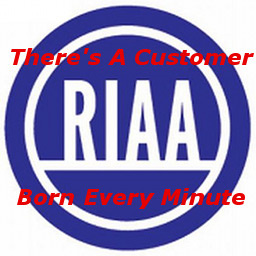 Last week the RIAA unveiled a new anti-piracy program aimed at children as young as third graders. The Music Rules! program offers free propaganda disguised as educational material for download in PDF format. The RIAA will also ship free printed copies of each publication to educators on request.
Last week the RIAA unveiled a new anti-piracy program aimed at children as young as third graders. The Music Rules! program offers free propaganda disguised as educational material for download in PDF format. The RIAA will also ship free printed copies of each publication to educators on request.
A Teacher's Guide promises curriculum "designed to reinforce skills across the curriculum in math, language arts, citizenship, and music." The language arts component is apparently covered by making up a new word to describe people who copy songs without a label's permission.
One worksheet, specifically aimed at children in grades 3-5 explains "They are songlifters, people who take songs without paying for them.Sometimes songlifters copy music from other people’s CDs. Sometimes they use the Internet to download music from other people’s computers. Either way, songlifting is like shoplifting, and that means it’s wrong."
In the math portion, kids are instructed to interview their family and friends to add up the number of times they've either songlifted themselves, or assisted in others' songlifting activities by allowing them to copy music.
Citizenship apparently refers to learning the list of people supposedly deprived of their liveliehoods by songlifting. They include agents and music publishers.
Read more...
Written by Rich Fiscus @ 16 Feb 2009 10:36
 Netflix announced last week that thy passed the 10 million subscriber mark. What's perhaps most remarkable is that more than 600,000 have been added in the first month and a half of this year.
Netflix announced last week that thy passed the 10 million subscriber mark. What's perhaps most remarkable is that more than 600,000 have been added in the first month and a half of this year.
A company statement attributes this primarily to increased interest in their Watch Instantly streaming service. That makes sense considering the role it has played in their recent success and the growing availability of a set-top box from Roku, blu-ray players, game consoles, and even TVs with Netflix clients.
Strong sales of Blu-ray players in the fourth quarter of 2008 may also be attracting more interest.
"Ten million subscribers is a symbolic but meaningful achievement for our company," said Reed Hastings, Netflix co-founder and CEO. "From a subscriber standpoint, Netflix is singularly focused on making movie enjoyment easy, and we'll strive to deliver on that promise in added and improved ways in the years to come."
Written by Rich Fiscus @ 14 Feb 2009 12:41
 After staying notably silent on the subject of jailbreaking for the first year and a half of the iPhone's existence, Apple has now submitted a document to the Library of Congress claiming that reverse engineering the iPhone's operating system is copyright infringemnt.
After staying notably silent on the subject of jailbreaking for the first year and a half of the iPhone's existence, Apple has now submitted a document to the Library of Congress claiming that reverse engineering the iPhone's operating system is copyright infringemnt.
Their claim is in response to the Electronic Frontier Foundation's submission for the annual DMCA exemption review. Under the DMCA, the Library of Congress is allowed to allow selected activities which would normally be forbidden by the DMCA. Due to encryption used for various bits of software in it, the reverse engineering require to jailbreak the iPhone OS falls under that cateogory.
The EFF is requesting an exemption for "Computer programs that enable wireless telephone handsets to execute lawfully obtained software applications, where circumvention is accomplished for the sole purpose of enabling interoperability of such applications with computer programs on the telephone handset."
Apple's response indicates that they consider such an exemption inappropriate because it would violate their copyrights. As the EFF points out,"Running lawfully obtained software on a smart phone does not infringe copyright, nor does the process of jailbreaking a smart phone in order to accomplish this goal."
Read more...
Written by Rich Fiscus @ 13 Feb 2009 11:31
 The European Parliament's Committee On Legal Affairs is proposing that copyright term for sound recordings be extended to 95 years. It would nearly double the current 50 year limit, although some countries are already considering an extension beyond that point.
The European Parliament's Committee On Legal Affairs is proposing that copyright term for sound recordings be extended to 95 years. It would nearly double the current 50 year limit, although some countries are already considering an extension beyond that point.
On the surface this is quite similar to the Copyright Term Extension Act passed into US law in the late 1990s. But a closer look reveals some interesting differences that at least attempt to benefit artists.
One major difference between the US law and the proposed EU directive is the performer's financial obligation to their label. When an album is released the artist typically receives no royalties at first as they're used to pay back whatever advance the label has given them.
In many cases this amount is never paid back, resulting in the label keeping all artist royalties long after they've written off the advance as a business expense. Under the terms of Legal Affairs Committee's recommendation the advance debt would be wiped out after 50 years, allowing them to collect their full share of royalties.
Read more...
Written by Rich Fiscus @ 12 Feb 2009 3:01
 Concert promotion giant Live Nation and ticketing juggernaut Ticketmaster are planning to merge into a single company. The new company, which they intend to call Live Nation Entertainment, would arguably be the single most powerful force in the US live music business. And that is why it wlil be getting an enourmous amount of attention from the Federal Governmment before they allow it to happen.
Concert promotion giant Live Nation and ticketing juggernaut Ticketmaster are planning to merge into a single company. The new company, which they intend to call Live Nation Entertainment, would arguably be the single most powerful force in the US live music business. And that is why it wlil be getting an enourmous amount of attention from the Federal Governmment before they allow it to happen.
Ticketmaster's near-monopoly of ticket sales in major US concert venues in the 1990 was the subject of more than a little controversy. During that time Pearl Jam famously boycotted Ticketmaster-served venues in protest of the service fees they charge for each ticket.
More recently Bruce Springsteen has railed against the company for allegedly redirecting ticket buyers to the website of a subsidiary, which then charges an additional markup beyond the standard price.
In the last few years Live Nation has managed to become a serious competitor in the ticketing business. Last year they also made headlines by sgning Madonna to a so-called 360 deal, which involved a three album deal with Live Nation owning the albums as well as all merchandise rights and tour profits in exchange for $120 million.
Read more...
Written by Rich Fiscus @ 12 Feb 2009 2:22
 Qtrax, the ad-supported music service that launched to much fanfare (but no music) over a year ago has finally managed to get deals with all four major record labels in place.
Qtrax, the ad-supported music service that launched to much fanfare (but no music) over a year ago has finally managed to get deals with all four major record labels in place.
Following last January's embarassing debut many people questioned whether Qtrax would ever actually have any music to download. Later in the year they began announcing deals with major labels, first EMI and then Universal Music Group.
In June, 2008 they finally introduced some music to their service, followed later in the year with a deal with Sony BMG. Now they've announced an agreement with Warner Music Group, which will give them access to songs from every major label.
Stephen Bryan, WMG's Senior Vice President, Digital Strategy and Business Development, said, "Today's music industry is undergoing a dynamic transition which has us continually exploring fresh ways
of delivering music to consumers. We look forward to leveraging platforms
like Qtrax's to broaden the reach of our artists' music and provide consumers
with a unique and legal music-discovery experience."
Written by Rich Fiscus @ 12 Feb 2009 1:24
 A New Jersey man who plead guilty to Conspiring To Commit Criminal Copyright Infringement last year has been sentenced to three years probation and 200 hours of community service. Under the name Metaslug, Richard Mendez supplied software to several groups on the warez scene, including the infamous FairLight release group.
A New Jersey man who plead guilty to Conspiring To Commit Criminal Copyright Infringement last year has been sentenced to three years probation and 200 hours of community service. Under the name Metaslug, Richard Mendez supplied software to several groups on the warez scene, including the infamous FairLight release group.
Mendez was arrested and prosecuted as part of Operation Higher Education, the largest component of the international law enforcement initiative called Operation Fastlink. Operation Fastlink resulted in searches and seizures being conducted in a dozen countries.
Earlier this month the last defendant from Operation Higher Education plead guilty in Federal Court. He has yet to be sentenced.
Written by Rich Fiscus @ 12 Feb 2009 12:47
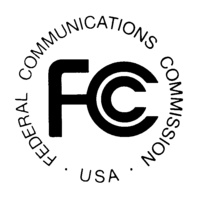 The FCC has finished reviewing requests from US broadcasters with plans to switch off their analog signals and go all-digital on February 17 as originally planned. Out of 491 stations, the FCC plans to force 123 to maintain analog broadcasts, allowing just 368 to actually make the switch.
The FCC has finished reviewing requests from US broadcasters with plans to switch off their analog signals and go all-digital on February 17 as originally planned. Out of 491 stations, the FCC plans to force 123 to maintain analog broadcasts, allowing just 368 to actually make the switch.
According to the agency's official decision, released earlier today, the stations which will be forced to continue analog broadcasting must do so because "early termination poses a significant risk of substantial public harm." Their decision was based on the availability of alternate sources for local news and public affairs programming, as well as major network coverage.
The stations whose reqests were denied have until 6PM EST to file an appeal with the FCC if they wish to contest the decision. If they choose not to contest the decision or lose their appeal they will have to wait until June 12 to go all digital, as mandated by the DTV Delay Act of 2009.
Written by Rich Fiscus @ 12 Feb 2009 11:59
 As debt-ridden Sirius XM Satellite Radio gets closer to declaring bankruptcy they appear to be fighting back against a takeover attempt by Echostar. Echostar, who owns much of Sirius XM's $3.25 billion in debt, seems positioned for a buyout (or more accurately exchange of debt for stock. But Reuters is reporting that Sirius XM executives are in talks with Liberty Media looking for a better deal.
As debt-ridden Sirius XM Satellite Radio gets closer to declaring bankruptcy they appear to be fighting back against a takeover attempt by Echostar. Echostar, who owns much of Sirius XM's $3.25 billion in debt, seems positioned for a buyout (or more accurately exchange of debt for stock. But Reuters is reporting that Sirius XM executives are in talks with Liberty Media looking for a better deal.
The primary point of disagreement with Echostar's Charlie Ergen, according to Reuters, is whether current Sirius XM CEO Mel Karmazin would keep his job. Liberty Media controls DirecTV and owns 50% of that company. Echostar manufactures satellite TV receivers and DVRs for DirecTV's major competitor, Dish Network, and until last year was part of that company.
It's unclear at this time whether this is a serious possibility or just a last ditch effort by Sirius XM executives to keep their jobs. It may help that one member of their board of directors, Eddy Hartenstein, is also the former CEO and Chairman of DirecTV's board, and served as their President for over a decade prior to that.
Written by Rich Fiscus @ 12 Feb 2009 11:26
 With CD sales in a freefall over the last several years there has been no end to speculation about the cause. Fingers have been pointed at the portable music player market, iTunes, P2P file sharing, and a general apathy toward the format by younger music fans. An interesting announcement from Tony van Veen of Disc Makers, the corporate parent of CD Baby, may shed some light on the issue. That's because his company apparently saw an increase in CD sales last year.
With CD sales in a freefall over the last several years there has been no end to speculation about the cause. Fingers have been pointed at the portable music player market, iTunes, P2P file sharing, and a general apathy toward the format by younger music fans. An interesting announcement from Tony van Veen of Disc Makers, the corporate parent of CD Baby, may shed some light on the issue. That's because his company apparently saw an increase in CD sales last year.
CD Baby distributes music for independent artists. They're not a label. They charge a small fee to setup an initial page for each CD they sell, and also offer optional online distribution through their own download store as well as iTunes, Rhapsody, Napster, and Amazon MP3. They even have a CD duplication service artists can use.
Somehow with this barebones approach to marketing and distribution they managed a 2% year over year CD sales increase in 2008. By comparison, the CD market as a whole shrank by 20%.
There are many possible explanations for this. It may be the result of increased interest in independent artists, or perhaps a reflection of musicians who are recognizing the reality that you can record, duplicate, promote, and distribute albums without a label's resources behind you.
Read more...
Written by Rich Fiscus @ 12 Feb 2009 10:07
 On February 16 the trial of Fredrik Neij, Per Svartholm Warg, Peter Sunde, and Carl Lundström is set to begin in Sweden. The four men are charged as accessories to copyright infringement. Yesterday, less than a week before the trial, it was announced that Swedish public broadcaster SVT 24 will offer a live streaming audio feed of the proceedings.
On February 16 the trial of Fredrik Neij, Per Svartholm Warg, Peter Sunde, and Carl Lundström is set to begin in Sweden. The four men are charged as accessories to copyright infringement. Yesterday, less than a week before the trial, it was announced that Swedish public broadcaster SVT 24 will offer a live streaming audio feed of the proceedings.
The real issue that's going to be decided is much bigger than the guilt or innocence of four people. At issue is the legality of a torrent trackers like The Pirate Bay under Swedish law.
There's no question that many of the downloads available from The Pirate Bay are for files that certainly infringe copyrights. The question is whether they're responsible for that content. One defendant has called that idea "idiotic."
Another key point of contention is the possible influence of Warner Brothers on the case. Last April it was revealed that the prosecution's star witness took a job with the US based entertainment giant shortly after charges were filed in Sweden. The Pirate Bay is also being sued by the MPAA over a number of movie and TV downloads, including two Warner Brothers releases.
Read more...
Written by Rich Fiscus @ 11 Feb 2009 6:15
 Earlier this morning Alex Curtis at the Public Knowledge website was calling attention to the latest attempt to sneak a provision directly from the copyright lobby into a bill. Senator Feinstein, who predictably represents California, proposed an addition to the economic stimulus plan being rushed through Congress. Her amendment would declare ISP monitoring of all web traffic for copyright violations to be reasonable network management.
Earlier this morning Alex Curtis at the Public Knowledge website was calling attention to the latest attempt to sneak a provision directly from the copyright lobby into a bill. Senator Feinstein, who predictably represents California, proposed an addition to the economic stimulus plan being rushed through Congress. Her amendment would declare ISP monitoring of all web traffic for copyright violations to be reasonable network management.
This would open the door for the so-called three strikes rules record labels and movie studios are anxious to see implemented. Their plan is to convince ISPs to disconnect users based on traffic monitoring data, avoiding expensive lawsuits they can't seem to win when challenged in court.
It would also have an unprecedented effect on the privacy of US citizens. Technological differences aside, it would be similar to letting a private company open all your mail, listen in on all your phone calls, and follow you around recording everything you say or do - even in private settings.
And even if there weren't serious legal and ethical questions it's simply not possible to tell the difference between copyright infringement and fair use this way. Just because the use of a work isn't authorized by the copyright holder doesn't automatically make it infringement.
Read more...
Written by Rich Fiscus @ 11 Feb 2009 5:21
 Less than a year ago, after 18 years of regulatory examination, the Sirius and XM satellite radio services completed a merger. Now it appears that the combined company may be taken over by satellite television giant Echostar.
Less than a year ago, after 18 years of regulatory examination, the Sirius and XM satellite radio services completed a merger. Now it appears that the combined company may be taken over by satellite television giant Echostar.
Over the past several months the company's value has plummeted. Meanwhile Echostar has been busy buying up much of Sirius XM's $3.25 billion in debt. Now the New York Times is reporting they're planning to file for Chapter 11 Bankruptcy any time.
Under Chapter 11 they would try to work out deals with creditors to restructure their debt load while they reorganize. Getting Echostar to forgive much of it in return for control of the company would be a big step in that direction.
Written by Rich Fiscus @ 11 Feb 2009 2:32
 The deadline set by lawmakers last year for SoundExchange and webcasters to come to a deal over internet radio royalties is nearly here. Having failed to find enough common ground so far, SoundExchange seems to be specifically targetting smaller operations.
The deadline set by lawmakers last year for SoundExchange and webcasters to come to a deal over internet radio royalties is nearly here. Having failed to find enough common ground so far, SoundExchange seems to be specifically targetting smaller operations.
Their new proposal would apparently give the smallest commercial internet radio operations even bigger breaks than past offers would have. It would create a category called "microcasters" whose minimum royalty payments would be just $500 annually plus a $100 reporting waiver fee.
Where SoundExchange's true colors begin to shine through is another provision on acquisitions. It says "the small webcaster taking this deal may not sell to any entity that is or will participate in a proceeding to set rates and terms for webcasting."
Perhaps they're hoping a divide and conquer strategy will do what more than a year of "we won so deal with it" hasn't. Or maybe they just want to give the appearance of good faith to avoid the wrath of Congress.
Read more...
Written by Rich Fiscus @ 10 Feb 2009 9:25
 The DTV Delay Act, which passed both the US Senate and House of Representatives recently, was supposed to ensure consumers who won't be prepared for the DTV transition on the original February 17 date would still be able to watch TV. But today when the FCC released the list of broadcasters who are hoping to turn off their analog signals by that date anyway that's not how it looked.
The DTV Delay Act, which passed both the US Senate and House of Representatives recently, was supposed to ensure consumers who won't be prepared for the DTV transition on the original February 17 date would still be able to watch TV. But today when the FCC released the list of broadcasters who are hoping to turn off their analog signals by that date anyway that's not how it looked.
According to the FCC announcement 190 stations were already cleared to go all digital prior to the original deadline. Nearly 500 more have informed the FCC they still plan to keep the original schedule and make the transition on February 17. In total 681 stations, more than a third of all full power broadcasters in the US, intend to stick with their original plans.
There's no guarantee all these stations will be allowed to go through with the transition early. The rule changes that go along with the new transition date allow the FCC to force stations to wait until June 12 if commissioners feel it would be "contrary to the public interest" for them to switch over early.
It seems likely the FCC won't allow that many stations to switch this month. That raises the question of whether there may be lawsuits by broadcasters who are stuck with additional expenses stemming directly from the Federal Government's sudden change of plans.
Written by Rich Fiscus @ 09 Feb 2009 1:41
 Just in case there wasn't enough chaos surrounding the US DTV transition, an executive from the Consumer Electronics Association (CEA) gave the FCC some more bad news last Thursday. Speaking at an open meeting of FCC commissioners on the DTV transition Michael Petricone, CEA's Senior Vice President for Governmental Affairs, said there may soon be a shortage of converter boxes.
Just in case there wasn't enough chaos surrounding the US DTV transition, an executive from the Consumer Electronics Association (CEA) gave the FCC some more bad news last Thursday. Speaking at an open meeting of FCC commissioners on the DTV transition Michael Petricone, CEA's Senior Vice President for Governmental Affairs, said there may soon be a shortage of converter boxes.
The problem, Petricone explained, is the consumer electronics industry's inability to accurately predict demand for the boxes, most of which will be purchased with the assistance of government vouchers. Once the transition is complete there will be little or no market for them, which is why most manufacturers stopped production in early January in anticipation of a February 17 switchover.
This isn't the first time we've seen problems with the DTV converter supply chain. With some notable exceptions, such as Best Buy and Radio Shack, many retailers were unable to meet consumer demand last summer. During the last few months of 2008 retailer stock seemed to catch up to demand.
Ironically the good news for consumers in need of DTV converters is the bad news for the economy. Due to decreased demand for consumer electronics many assembly lines which would normally have been re-tooled to make other products have simply been shut down instead. This means it should be possible to get additional units on store shelves in half the normal time.
Read more...
Written by Rich Fiscus @ 09 Feb 2009 11:31
 TotalMusic LLC, the company behind the college oriented Ruckus music service, appears to be dead. Last week the Ruckus website was replaced with a notice of the service's demise. This was followed by a blog entry from one of the company's executive that reads like a corporate obituary.
TotalMusic LLC, the company behind the college oriented Ruckus music service, appears to be dead. Last week the Ruckus website was replaced with a notice of the service's demise. This was followed by a blog entry from one of the company's executive that reads like a corporate obituary.
TotalMusic started out life in the summer of 2007 as a plan for the major record labels to offer a subscription music service directly to ISPs. It was seen by some in the music industry as both an answer to iTunes' dominance over the online music market and a way to curb illegal file sharing.
The US Department of Justice saw it a little differently and in early 2008 decided an antitrust investigation was in order. This ended TotalMusic's initial foray into online music but their comic misadventures were far from over.
Later in 2008.TotalMusic bought Ruckus, a company offering free, ad-supported, DRM limited music to college students. Ruckus had been around since 2004, but hadn't managed to make a serious impact in the online music business.
Read more...
Written by Rich Fiscus @ 09 Feb 2009 7:40
 A website which specialiazes in electronics reviews and ratings is offering a unique solution for US residents who need DTV vouchers. They're offering to match people who need the coupons with those who have already received theirs but won't be using them.
A website which specialiazes in electronics reviews and ratings is offering a unique solution for US residents who need DTV vouchers. They're offering to match people who need the coupons with those who have already received theirs but won't be using them.
When the DTV Delay Act passed the US House of Representatives last week there were still more than 2 million people on the waiting list to receive government vouchers for DTV converters. If you're one of thoe people Retrevo's program isn't meant for you. In fact their website notes it's illegal to get more than two vouchers per household, regardless of the source.
But if you're not already on the waiting list, time may not be your only concern. The DTV Delay Act only extends the amount of time before analog signals switch off. The money for the voucher program remains the same.
At the same time it provides a provision for replacing vouchers that expired before being used, making even more people eligible to get on the waiting list. There have been bills proposed to either increase the money available for the voucher program or give a tax credit for the purchase of a converter box. So far though, none of them appears close to becoming law.
Read more...
Written by Rich Fiscus @ 06 Feb 2009 11:13
 At least once a month we seem to publish the latest figures from some faceless group of "media analysts" claiming to have consulted their crystal ball and divined the future of the video market. February's flavor of the month this year is SNL Kagan. Two days ago they issued a press release boldly predicting Blu-ray will dominate the home video market in 2014 only to be overtaken by online video three years later. It makes for good press, but why should we believe them?
At least once a month we seem to publish the latest figures from some faceless group of "media analysts" claiming to have consulted their crystal ball and divined the future of the video market. February's flavor of the month this year is SNL Kagan. Two days ago they issued a press release boldly predicting Blu-ray will dominate the home video market in 2014 only to be overtaken by online video three years later. It makes for good press, but why should we believe them?
Let's start with the obvious fact. Nobody knows the future. I'd be willing to bet there was no 2001 SNL Kagan report correctly predicting DVD sales for this year. There's simply no way they could have known what would be happening with Blu-ray, online video, or even the economy.
I don't have a 2001 report to prove that with, but as it happens I do have another press release from just before the Christmas shopping season last year. If they really can forecast sales it should look about the same as their current report right? Well it doesn't.
According to the November 2008 press release "SNL Kagan estimates there will be 46.2 million high-definition player homes, with the number increasing to 107.1 million by 2017." Meanwhile the latest guess for 2017, just three months later, is "115.2 million high-definition DVD homes."
Read more...
Written by Rich Fiscus @ 06 Feb 2009 10:00
 Less than a year ago very few people had heard of a Saratoga, California company called Roku. Then they released the first ever set-top box to stream movies from Netflix directly to your TV and started a revolution. Since then Netflix has established partnerships to get their client on Blu-ray players, DVRs, game consoles, and even HDTVs. You might think all this competition spells trouble for a product like the Roku box that "only" plays video. Based on the overwhelming interest in Roku's Amazon VOD beta shows, you'd probably be wrong.
Less than a year ago very few people had heard of a Saratoga, California company called Roku. Then they released the first ever set-top box to stream movies from Netflix directly to your TV and started a revolution. Since then Netflix has established partnerships to get their client on Blu-ray players, DVRs, game consoles, and even HDTVs. You might think all this competition spells trouble for a product like the Roku box that "only" plays video. Based on the overwhelming interest in Roku's Amazon VOD beta shows, you'd probably be wrong.
Shortly after they started accepting requests to join the beta for Amazon VOD on the Roku Digital Video Player all their slots were filled. And why not? If you already have the Roku box and use it for Netflix why wouldn't you want to move to VOD rentals. The Netflix Watch Instantly service is nice, but it doesn't offer new releases.
Read more...
Written by Rich Fiscus @ 06 Feb 2009 1:59
 Around a year ago U2's manager was telling anyone who would listen that the internet freeloaders were destroying the music industry. Apparently those freeloaders have magically turned into prospective customers. Following in the steps of pioneers like Trent Reznor and Radiohead, U2 will be giving away the first single from their new album.
Around a year ago U2's manager was telling anyone who would listen that the internet freeloaders were destroying the music industry. Apparently those freeloaders have magically turned into prospective customers. Following in the steps of pioneers like Trent Reznor and Radiohead, U2 will be giving away the first single from their new album.
The single, called "Get On Your Boots," will be available for free download on February 15. The album will be in stores on March 2 in several forms. There will be a CD, 3 different limited edition CDs with various extras including booklets and downloadable content, and even a vinyl version.
What's strangely missing are packages centered around downloads, perhaps in a high quality format like FLAC. Apparently they haven't learned quite as much as it looks like at first. Perhaps they're still hoping to "catering to people who want to hear music "through big speakers rather than ear buds," as their manager suggested last year.
The only problem is those people listening to ear buds are the ones buying music. The reason Trent Reznor and Radiohead made piles of money from new business models was because they gave consumers something they were clamoring for. People can already get CDs. They want something different.
Read more...
Written by Rich Fiscus @ 05 Feb 2009 5:05
 US President Obama and Congressional Democrats have been the subject of much criticism over the DTV transition being delayed until June 12. And to be fair Congressional oversight in the months and years leading up to this point has been less than thorough. But the FCC, whom Congress delegated most of their responsibility to, shares more than a little of the blame. In particular, former FCC Chairman Kevin Martin was responsible for that agency's leadership or lack therof.
US President Obama and Congressional Democrats have been the subject of much criticism over the DTV transition being delayed until June 12. And to be fair Congressional oversight in the months and years leading up to this point has been less than thorough. But the FCC, whom Congress delegated most of their responsibility to, shares more than a little of the blame. In particular, former FCC Chairman Kevin Martin was responsible for that agency's leadership or lack therof.
After the bill authorizing the delay passed the House of Representatives, FCC commissioners Jonathan Adelstein and Robert M. McDowell and acting Chairman Michael Copps shared their thoughts on the situation. All praised Congress for the legislation and agreed that the additional time is important for preparing the public. They also unanimously criticized the inaction of the previous Chair.
Commissioner Adelstein went the furthest, saying "this national transition has been mismanaged and plagued by the lack of a coherent and coordinated strategy. More time was desperately needed to correct the mistakes that many, including leaders in Congress, the Government Accountability Office, and every current member of the FCC, have long raised."
Read more...
Written by Rich Fiscus @ 05 Feb 2009 3:46
 Today Microsoft announced that 1 million Xbox LIVE customers have downloaded and activated the Netflix streaming video application. The Netflix client makes it possible to stream that company's Watch Instantly content through the Microsoft console.
Today Microsoft announced that 1 million Xbox LIVE customers have downloaded and activated the Netflix streaming video application. The Netflix client makes it possible to stream that company's Watch Instantly content through the Microsoft console.
The announcement serves as a sort of exclamation point to Netflix's performance last year. Despite the economic problems their customer base experienced, Netflix announced surprisingly strong growth during the fourth quarter. The client is available to anyone with an Xbox LIVE Gold membership. Access to Watch Instantly content also requires a Netflix subscription.
Netflix CEO Reed Hastings credits much of that growth on their success in establishing partnerships with consumer electronics companies. This has allowed them to get their client added to set-top boxes, Blu-ray players, and even HDTVs.
Read more...
Written by Rich Fiscus @ 05 Feb 2009 2:55
 Less than a month into his term as President of the United States, Barrack Obama has offered a second high ranking position in Justice Department to a partner in one of the RIAA's favorite law firms. Last month Tom Pirelli, one of the original architects of the RIAA's lawsuit campaign against file sharing, was nominated to be the top civil rights official in the US Attorney General's office. Now Jenner & Block, the firm where Pirelli worked as Managing Partner, is sending 3 more lawyers to work for the DOJ.
Less than a month into his term as President of the United States, Barrack Obama has offered a second high ranking position in Justice Department to a partner in one of the RIAA's favorite law firms. Last month Tom Pirelli, one of the original architects of the RIAA's lawsuit campaign against file sharing, was nominated to be the top civil rights official in the US Attorney General's office. Now Jenner & Block, the firm where Pirelli worked as Managing Partner, is sending 3 more lawyers to work for the DOJ.
Brian Hauck, who assisted in the infamous Grokster case and became a partner in the firm earlier this year, will be joining the Department of Justice as Counsel for the Associate Attorney General. Jenner & Block associate Ginger Anders will be taking a job as Assistant to the Solicitor General. The Solicitor General is responsible for arguing Supreme Court cases on behalf of the DOJ.
Don Verrilli, who actually argued MGM v Grokster before the Supreme Court on behalf of a group of entertainment companies, has been nominated for the position of Associate Deputy Attorney General. In the Grokster case Verrilli convinced the court that a company may be liable for secondary infringement when they distribute a product which is used to facilitate copyright infringement, even if it has substantial non-infringing uses.
Read more...
Written by Rich Fiscus @ 05 Feb 2009 10:48
 Considering the massive amount of work before the House of Representatives to deal with one financial crisis after another you would think their days would be full. But there are a few Representatives who have found the time to support record labels in their continuing quest to squeeze performance royalties out of terrestrial radio stations.
Considering the massive amount of work before the House of Representatives to deal with one financial crisis after another you would think their days would be full. But there are a few Representatives who have found the time to support record labels in their continuing quest to squeeze performance royalties out of terrestrial radio stations.
The Performance Rights Act is sponsored by John Conyers of Michigan. Not surprisingly the 18 co-sponsors include 7 Representatives from California. The text of the bill's current incarnation hasn't been released to the public yet but assuming it's similar to last year's attempt (and the related Senate bill) it doesn't look good for radio stations.
So what's wrong with charging performance royalties to radio stations? After all internet radio providers pay them. But here's the difference. Terrestrial broadcasters have many different expenses than webcasters. They have transmitters to operate and maintain, and typically a much larger production and sales staff to pay. And of course that doesn't include administrative costs such as FCC licensing. In fact when I spoke to Tim Westergren of Pandora Internet Radio last year he told me the two already have similar royalty costs.
Read more...
Written by Rich Fiscus @ 04 Feb 2009 1:48
 As expected, the US House of Representatives Rules Committee has referred the new version of a bill to delay the US DTV transition to the Energy and Commerce Committee. From there it will go to the full House to be debated and voted on.
As expected, the US House of Representatives Rules Committee has referred the new version of a bill to delay the US DTV transition to the Energy and Commerce Committee. From there it will go to the full House to be debated and voted on.
According to the Energy and Commerce Committee there are currently more than 2 million households still waiting for DTV vouchers to be mailed. That's because all remaining funding is tied up in vouchers that have already been sent out but not redeemed.
If the new bill is passed it will allow new vouchers to be mailed out using First Class mail instead of the Standard Mail service being used currently. It also includes a provision to replace expired vouchers, something critics of the program have been asking about for months.
What it doesn't provide for is any additional funding to provide more vouchers. So if all the money is spoken for and there are people still not covered it seems likely there would be more funding on the way that they're not talking about now.
Read more...
Written by Rich Fiscus @ 04 Feb 2009 12:29
 It seems like only yesterday Jennifer Pariser was testifying as a witness for the RIAA against Jammie Thomas. That was when she famously testified that "Making a copy of a purchased song is just a nice way of saying 'steals just one copy.'" The RIAA was apparently impressed by her performance and has hired her away from Sony BMG where she was Senior Vice President & Associate General Counsel, Litigation and Anti-Piracy.
It seems like only yesterday Jennifer Pariser was testifying as a witness for the RIAA against Jammie Thomas. That was when she famously testified that "Making a copy of a purchased song is just a nice way of saying 'steals just one copy.'" The RIAA was apparently impressed by her performance and has hired her away from Sony BMG where she was Senior Vice President & Associate General Counsel, Litigation and Anti-Piracy.
Despite their recent statement that they were done suing consumers over P2P file sharing, the RIAA apparently still found it useful to have someone with strong anti-consumer views leading their legal team. Pariser has been hired as their Senior Vice President of Litigation and Legal Affairs.
Of course just because the RIAA has put their legal jihad against file sharers on hold doesn't mean they won't be suing anyone. There are still torrent tracker sites, P2P software developers, satellite radio providers, ISPs and streaming audio companies who are already paying them.
Read more...
Written by Rich Fiscus @ 03 Feb 2009 11:56
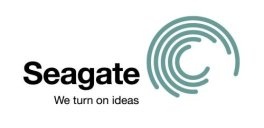 Seagate has announced a new line of drives that are slated to offer a capacity of 2 trillion Bytes (2TB) - eventually. The first Constellation drives are expected to start shipping sometime during the first quarter of this year. But unlike the Western Digital Caviar Green drives which can already be pre-ordered from many vendors, the actual 2TB capacity Seagate drives may not ship until late summer.
Seagate has announced a new line of drives that are slated to offer a capacity of 2 trillion Bytes (2TB) - eventually. The first Constellation drives are expected to start shipping sometime during the first quarter of this year. But unlike the Western Digital Caviar Green drives which can already be pre-ordered from many vendors, the actual 2TB capacity Seagate drives may not ship until late summer.
The 2.5" drives to be released first will feature capacities up to 500GB and be offered with either a SATA or SAS (Serial Attached SCSI) interface. Like Western Digital, Seagate is promoting their new drives' power efficiency. As of yet though it's difficult to make a comparison between the two since Seagate hasn't released many specifics.
Based on what little information is available on their website the new drives appear to be comparable to or slightly worse than Western Digital's existing drive lines. While they claim their new PowerChoice techology gives them "the highest power-reduction savings ever offered in an enterprise-class HDD," looking at the specs for their current products that makes sense. They already appear to use about 20% more power than comparable Western Digital units.
Read more...
Written by Rich Fiscus @ 03 Feb 2009 2:12
 Today the US House of Representatives' Rules Committee will be meeting to make sure the latest bill to delay the US DTV transition until June will only require a simple majority to pass. The previous bill was defeated last week due to a requirement for a 2/3 majority. However it did receive enough votes to pass by the simple majority expected to be required this time.
Today the US House of Representatives' Rules Committee will be meeting to make sure the latest bill to delay the US DTV transition until June will only require a simple majority to pass. The previous bill was defeated last week due to a requirement for a 2/3 majority. However it did receive enough votes to pass by the simple majority expected to be required this time.
The new bill differs slightly from the original version. The difference is primarily in the addition of a reporting requirement which will keep legislators apprised of how many government vouchers and DTV converters are available to the public. While this is a refreshing change from the government's previous hope and pray approach, it seems like very little very late.
Like the previous incarnation of the bill, the Digital Television Transition Extension Act of 2009 would delay the date TV stations would be required to turn off analog signals until June 12,nearly a four month delay. It also includes a similar provision for replacing expired vouchers. However it does add language to expedite shipping via First Class mail rather than the Standard Mail service currently being used.
Written by Rich Fiscus @ 03 Feb 2009 1:28
 The UK's Performance Rights Society (PRS) is tasked with the responsibility of collecting royalties whenever music is performed for the public. It's a job they seem to do with the fervor or a recent religious convert. The good news is if you're a Lancashire police officer they're no longer coming after you for entertaining prisoners. The bad news is if you play the radio for animals you may be next on their list because it's possible a human might overhear.
The UK's Performance Rights Society (PRS) is tasked with the responsibility of collecting royalties whenever music is performed for the public. It's a job they seem to do with the fervor or a recent religious convert. The good news is if you're a Lancashire police officer they're no longer coming after you for entertaining prisoners. The bad news is if you play the radio for animals you may be next on their list because it's possible a human might overhear.
It seems that the PRS has fallen on hard times with the poor economy and they're targetting more and more small businesses. Proprieters of a dog shelter were told they should pay for a license just in case a human employee might listen to the music being played for the animals.
Think you're safe because you're running a charity? Well the PRS is no charity. Margaret Hatton who helps run Dam House, which provides community services and facilities to residents of Astley, was told that they would need a license for local schoolgirls to come and sing carols once a year.
A statement from the PRS indicated that they believe their members deserve royalties based on their free will choice to work in a profession that doesn't offer a living wage. "Over 90% of our members earn less than £5,000 per annum from their work and depend on royalty payments to help them earn while they continue to create," it said.
Written by Rich Fiscus @ 03 Feb 2009 12:37
 In October of 2008 the European Commission's Committee on Legal Affairs completed a study on copyright enforcement. So far nothing has been done about implementing the measures suggested in the so-called Medina Report (named for its author Manuel Medina Ortega) because it hasn't been officially presented to the European Parliament. But its stance on legal penalties for file sharing are already generating buzz across the internet.
In October of 2008 the European Commission's Committee on Legal Affairs completed a study on copyright enforcement. So far nothing has been done about implementing the measures suggested in the so-called Medina Report (named for its author Manuel Medina Ortega) because it hasn't been officially presented to the European Parliament. But its stance on legal penalties for file sharing are already generating buzz across the internet.
The reason why can be summed up in one bolded statement found on the report's eighth page. Separate from the rest of the text, bolded and underlined it says "The nature of copyright must not be allowed to change as a result of technological progress."
Here's a news flash for lawmakers. The nature of copyright has already changed and there's nothing any law can do to prevent it.
Computers and the internet have driven the cost of reproducing and distributing audio and video works down to practically nothing. iTunes is now the number one music retailer in the United States. The BBC has been delivering programming via the internet since 2007. And most importantly people can and do use P2P file sharing networks to download music and movies.
Read more...
Written by Rich Fiscus @ 02 Feb 2009 12:29
 One of the biggest hurdles Netflix has faced in developing the Watch Instantly streaming video service has been a lack of available content. While the company has been able to offer thousands of titles, a lot of the more valuable content is unavailable due to licensing agreements with cable companies. They already have a partnership with Starz to give them access to additional titles, and now it looks like they may be working on a deal to do something similar with HBO.
One of the biggest hurdles Netflix has faced in developing the Watch Instantly streaming video service has been a lack of available content. While the company has been able to offer thousands of titles, a lot of the more valuable content is unavailable due to licensing agreements with cable companies. They already have a partnership with Starz to give them access to additional titles, and now it looks like they may be working on a deal to do something similar with HBO.
Although there hasn't been any kind of announcement from Netflix about the possibility of a deal with HBO, company executives have always preferred not to talk about partnerships until they have actual deals in place. But that hasn't stopped them from sending out a questionnaire to subscribers to guage interest in HBO content.
The survey, which was detailed on the website Hacking Netflix, asks current subscribers if they would be interested enough in HBO content to pay an additional $10 per month for access to it. It seems like a steep price considering that you still have to provide the broadband connection and computer, set-top box, or Blu-ray player to watch.
Read more...

 The last few years have seen an explosion in streaming video. You can catch that TV show you missed last night, find episodes of your favorite 20 year old sitcom, or just watch amateur video on YouTube.
The last few years have seen an explosion in streaming video. You can catch that TV show you missed last night, find episodes of your favorite 20 year old sitcom, or just watch amateur video on YouTube.

 If you own an iPhone it's just become a little easier to watch video from TV.com thanks to their new addition to the iTunes App Store.
If you own an iPhone it's just become a little easier to watch video from TV.com thanks to their new addition to the iTunes App Store.
 Sony, which is expected to be announcing it's first annual loss in the last 14 years, is restructuring their management team and consumer electronics divisions. Effective April 1. Chairman and CEO Howard Stringer will be taking on the additional title of President.
Sony, which is expected to be announcing it's first annual loss in the last 14 years, is restructuring their management team and consumer electronics divisions. Effective April 1. Chairman and CEO Howard Stringer will be taking on the additional title of President.
 As the Pirate Bay trial continues in Sweden, the prosecution seems to lose credibility every day. The last two days' proceedings highlight a distinct lack of evidence or legal arguments on the part of prosecutors and their recording industry counterparts.
As the Pirate Bay trial continues in Sweden, the prosecution seems to lose credibility every day. The last two days' proceedings highlight a distinct lack of evidence or legal arguments on the part of prosecutors and their recording industry counterparts.
 A German manufacturer of ISP traffic monitoring hardware has issued their annual report on internet traffic trends. Based on a study which focuses on South America, Africa, the Middle East, and parts of Europe, the report from ipoque indicates that P2P accounts for more than half of all web traffic.
A German manufacturer of ISP traffic monitoring hardware has issued their annual report on internet traffic trends. Based on a study which focuses on South America, Africa, the Middle East, and parts of Europe, the report from ipoque indicates that P2P accounts for more than half of all web traffic.
 A recent study conducted by Nielsen, the famous TV ratings company, found that people watched more TV in the last quarter of 2008 than the same period a year earlier. Given current economic conditions that probably shouldn't surprise anyone.
A recent study conducted by Nielsen, the famous TV ratings company, found that people watched more TV in the last quarter of 2008 than the same period a year earlier. Given current economic conditions that probably shouldn't surprise anyone.
 Originally scheduled to be enforced starting on February 28, New Zealand's controversial
Originally scheduled to be enforced starting on February 28, New Zealand's controversial  France's 3 strikes law for P2P copyright infringers may be close to passage in the Fench National Assembly. Lawmakers are currently working on a final draft that should be ready for a vote some time next month according to
France's 3 strikes law for P2P copyright infringers may be close to passage in the Fench National Assembly. Lawmakers are currently working on a final draft that should be ready for a vote some time next month according to  In a statement last Thursday, acting FCC Commissioner Michael Copps seemed happy about how
In a statement last Thursday, acting FCC Commissioner Michael Copps seemed happy about how  Some bands welcome the exposure that P2P file sharing gives their music. U2 is not one of those bands. They
Some bands welcome the exposure that P2P file sharing gives their music. U2 is not one of those bands. They  Earlier this month the Electronic Frontier Foundation (EFF) officially requested that the Library of Congress create a DMCA exemption for jailbreaking smartphones to allow the installation of software not approved by the manufacturer. Last week Apple
Earlier this month the Electronic Frontier Foundation (EFF) officially requested that the Library of Congress create a DMCA exemption for jailbreaking smartphones to allow the installation of software not approved by the manufacturer. Last week Apple  The Swedish website for IFPI, the International Federation of the Phonographic industry was hacked yesterday to protest the ongoing
The Swedish website for IFPI, the International Federation of the Phonographic industry was hacked yesterday to protest the ongoing  An Australian man has been arrested for allegedly recording movies with his camcorder at a drive-in theater. According to the Motion Picture Association (MPA), an organization representing movie studios around the world, the 26 year old was responsible was responsible for recording a number of cam movies made available by the release group PreVail.
An Australian man has been arrested for allegedly recording movies with his camcorder at a drive-in theater. According to the Motion Picture Association (MPA), an organization representing movie studios around the world, the 26 year old was responsible was responsible for recording a number of cam movies made available by the release group PreVail.
 Yesterday SoundExchange and the National Association of Broadcasters (NAB) announced a deal for webcasting royalties. This deal covers only terrestrial radio stations, and not internet-only operations like Pandora. The deadline for SoundExchange
Yesterday SoundExchange and the National Association of Broadcasters (NAB) announced a deal for webcasting royalties. This deal covers only terrestrial radio stations, and not internet-only operations like Pandora. The deadline for SoundExchange  Last October South Park Studios, creators of the Comedy Central show with the same name, submitted an iPhone app to Apple. According to a
Last October South Park Studios, creators of the Comedy Central show with the same name, submitted an iPhone app to Apple. According to a  The US Department of Justice may be getting ready to back the RIAA in one of their P2P lawsuits. At issue is a challenge to the constitutionality of a single provision of US copyright law which mandates minimum damages of $750 per work (1 song or album), or as much as $150,000 per work if the infringer knows what he's doing is illegal.
The US Department of Justice may be getting ready to back the RIAA in one of their P2P lawsuits. At issue is a challenge to the constitutionality of a single provision of US copyright law which mandates minimum damages of $750 per work (1 song or album), or as much as $150,000 per work if the infringer knows what he's doing is illegal.
 Last week the RIAA unveiled a new anti-piracy program aimed at children as young as third graders. The Music Rules! program offers free propaganda disguised as educational material for download in PDF format. The RIAA will also ship free printed copies of each publication to educators on request.
Last week the RIAA unveiled a new anti-piracy program aimed at children as young as third graders. The Music Rules! program offers free propaganda disguised as educational material for download in PDF format. The RIAA will also ship free printed copies of each publication to educators on request.
 Netflix announced last week that thy passed the 10 million subscriber mark. What's perhaps most remarkable is that more than 600,000 have been added in the first month and a half of this year.
Netflix announced last week that thy passed the 10 million subscriber mark. What's perhaps most remarkable is that more than 600,000 have been added in the first month and a half of this year.
 After staying notably silent on the subject of jailbreaking for the first year and a half of the iPhone's existence, Apple has now submitted a document to the Library of Congress claiming that reverse engineering the iPhone's operating system is copyright infringemnt.
After staying notably silent on the subject of jailbreaking for the first year and a half of the iPhone's existence, Apple has now submitted a document to the Library of Congress claiming that reverse engineering the iPhone's operating system is copyright infringemnt.
 The European Parliament's Committee On Legal Affairs is proposing that copyright term for sound recordings be extended to 95 years. It would nearly double the current 50 year limit, although
The European Parliament's Committee On Legal Affairs is proposing that copyright term for sound recordings be extended to 95 years. It would nearly double the current 50 year limit, although  Concert promotion giant Live Nation and ticketing juggernaut Ticketmaster are planning to merge into a single company. The new company, which they intend to call Live Nation Entertainment, would arguably be the single most powerful force in the US live music business. And that is why it wlil be getting an enourmous amount of attention from the Federal Governmment before they allow it to happen.
Concert promotion giant Live Nation and ticketing juggernaut Ticketmaster are planning to merge into a single company. The new company, which they intend to call Live Nation Entertainment, would arguably be the single most powerful force in the US live music business. And that is why it wlil be getting an enourmous amount of attention from the Federal Governmment before they allow it to happen.
 Qtrax, the ad-supported music service that launched to much fanfare (but no music)
Qtrax, the ad-supported music service that launched to much fanfare (but no music)  A New Jersey man who plead guilty to Conspiring To Commit Criminal Copyright Infringement last year has been
A New Jersey man who plead guilty to Conspiring To Commit Criminal Copyright Infringement last year has been  The FCC has finished reviewing requests from US broadcasters with plans to switch off their analog signals and go all-digital
The FCC has finished reviewing requests from US broadcasters with plans to switch off their analog signals and go all-digital  As debt-ridden Sirius XM Satellite Radio gets closer to declaring bankruptcy they appear to be fighting back against a
As debt-ridden Sirius XM Satellite Radio gets closer to declaring bankruptcy they appear to be fighting back against a  With CD sales in a freefall over the last several years there has been no end to speculation about the cause. Fingers have been pointed at the portable music player market, iTunes, P2P file sharing, and a general apathy toward the format by younger music fans. An interesting announcement from Tony van Veen of Disc Makers, the corporate parent of CD Baby, may shed some light on the issue. That's because his company apparently saw an increase in CD sales last year.
With CD sales in a freefall over the last several years there has been no end to speculation about the cause. Fingers have been pointed at the portable music player market, iTunes, P2P file sharing, and a general apathy toward the format by younger music fans. An interesting announcement from Tony van Veen of Disc Makers, the corporate parent of CD Baby, may shed some light on the issue. That's because his company apparently saw an increase in CD sales last year.
 The deadline set by lawmakers
The deadline set by lawmakers  Just in case there wasn't enough chaos surrounding the US DTV transition, an executive from the Consumer Electronics Association (CEA) gave the FCC some more bad news last Thursday. Speaking at an open meeting of FCC commissioners on the DTV transition Michael Petricone, CEA's Senior Vice President for Governmental Affairs, said there may soon be a shortage of converter boxes.
Just in case there wasn't enough chaos surrounding the US DTV transition, an executive from the Consumer Electronics Association (CEA) gave the FCC some more bad news last Thursday. Speaking at an open meeting of FCC commissioners on the DTV transition Michael Petricone, CEA's Senior Vice President for Governmental Affairs, said there may soon be a shortage of converter boxes.
 TotalMusic LLC, the company behind the college oriented Ruckus music service, appears to be dead. Last week the Ruckus website was replaced with a notice of the service's demise. This was followed by a blog entry from one of the company's executive that reads like a corporate obituary.
TotalMusic LLC, the company behind the college oriented Ruckus music service, appears to be dead. Last week the Ruckus website was replaced with a notice of the service's demise. This was followed by a blog entry from one of the company's executive that reads like a corporate obituary.
 At least once a month we seem to publish the latest figures from some faceless group of "media analysts" claiming to have consulted their crystal ball and divined the future of the video market. February's flavor of the month this year is SNL Kagan. Two days ago they issued a press release boldly predicting Blu-ray will dominate the home video market in 2014 only to be overtaken by online video three years later. It makes for good press, but why should we believe them?
At least once a month we seem to publish the latest figures from some faceless group of "media analysts" claiming to have consulted their crystal ball and divined the future of the video market. February's flavor of the month this year is SNL Kagan. Two days ago they issued a press release boldly predicting Blu-ray will dominate the home video market in 2014 only to be overtaken by online video three years later. It makes for good press, but why should we believe them?
 Less than a year ago very few people had heard of a Saratoga, California company called Roku. Then they released the first ever set-top box to stream movies from Netflix directly to your TV and started a revolution. Since then Netflix has established partnerships to get their client
Less than a year ago very few people had heard of a Saratoga, California company called Roku. Then they released the first ever set-top box to stream movies from Netflix directly to your TV and started a revolution. Since then Netflix has established partnerships to get their client  US President Obama and Congressional Democrats have been the subject of much criticism over the DTV transition being delayed until June 12. And to be fair
US President Obama and Congressional Democrats have been the subject of much criticism over the DTV transition being delayed until June 12. And to be fair  Considering the massive amount of work before the House of Representatives to deal with one financial crisis after another you would think their days would be full. But there are a few Representatives who have found the time to support record labels in their continuing quest to squeeze performance royalties out of terrestrial radio stations.
Considering the massive amount of work before the House of Representatives to deal with one financial crisis after another you would think their days would be full. But there are a few Representatives who have found the time to support record labels in their continuing quest to squeeze performance royalties out of terrestrial radio stations.
 Seagate has announced a new line of drives that are slated to offer a capacity of 2 trillion Bytes (2TB) - eventually. The first Constellation drives are expected to start shipping sometime during the first quarter of this year. But unlike the Western Digital
Seagate has announced a new line of drives that are slated to offer a capacity of 2 trillion Bytes (2TB) - eventually. The first Constellation drives are expected to start shipping sometime during the first quarter of this year. But unlike the Western Digital  Today the US House of Representatives' Rules Committee will be meeting to make sure
Today the US House of Representatives' Rules Committee will be meeting to make sure  The UK's Performance Rights Society (PRS) is tasked with the responsibility of collecting royalties whenever music is performed for the public. It's a job they seem to do with the fervor or a recent religious convert. The good news is if you're a Lancashire police officer they're no longer coming after you for
The UK's Performance Rights Society (PRS) is tasked with the responsibility of collecting royalties whenever music is performed for the public. It's a job they seem to do with the fervor or a recent religious convert. The good news is if you're a Lancashire police officer they're no longer coming after you for 






